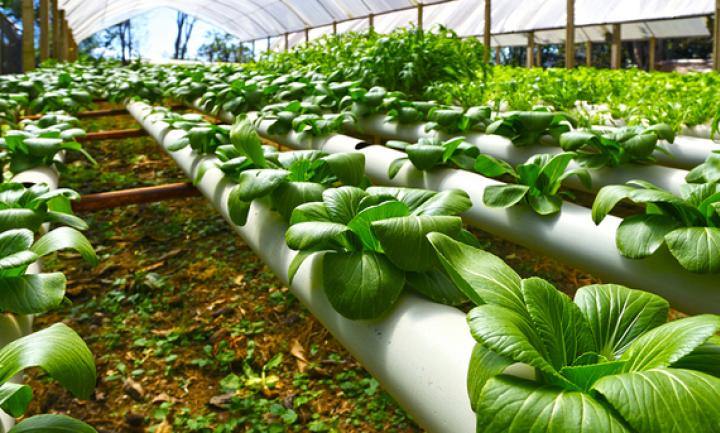Indoor garden Hydroponic system - Good and Bad
Image

Although hydroponics has been around since research was first conducted in the 18th century. Since then, its popularity has grown in leaps and bounds showing us how to grow plants in small spaces with water and nutrient solutions without the use of soil.
Hydroponic gardening will work anywhere in the world from severe cold to extremely arid conditions. It is highly possible that a hydroponic system will be able to feed the world's population.
There are various pros and cons to hydroponic plant growth from growing herbs, and vegetables to seedlings and flowers. There are many different garden ideas, this one is best to optimize space without use of soil.
Advantages:
Hydroponic gardening is no longer just for large production farms but for small gardens and in homes. Grow boxes are ideal for small spaces and people living in city dwellings where there is little to no space for a garden. Herb gardens to vegetable gardens, gardeners are enjoying fresh foods in the dead of winter or in areas that growth is literally impossible due to the elements.
Using water filters and plant lights along with a nutritional solution, growth is faster and, in many cases, developing a healthier stock. In classic gardening a great deal of water is spent in gardens whereas hydroponics' water source is recycled and therefore a great deal less water is needed.
Due to a hygienic environment, there is a lower risk of pests and diseases. Therefore the use of chemicals and pesticides is practically moot.
Plants are provided with nutritional values throughout their entire life, producing healthier more robust plants. Using plant lights removes the need plants have for seasonal changes allowing for year round growth.
Disadvantages:
Hydroponics can be a little pricey when first starting off. Purchasing your grow box or grow room, water filters and water treatments can add up. Also a hydroponic garden runs on electricity, so there could be a slight increase in your electrical bill.
Even though hydroponic plants are less susceptible to pests and diseases that doesn't mean it can't happen. Diseases can spread rather quickly because of the recycling of water. This is where understanding the process of water filtering and using water filters will prevent diseases from spreading.
Organic - Yes or No:
There are those who believe that plants grown hydroponically are not organic. In actuality, hydroponic plants can be organic. The natural availability of soil and sunshine do not make plants organic. Organic is growing without the use of chemicals or treatments, instead they grown naturally. Hydroponics uses water and a nutrient solution and both of these elements are organic.
Some plants known as genetically modified food are plants that are modified with various plant genetics, creating highbred or mutant plants. This process is done in order to produce large volumes of plants or in order for produce foods that last a longer period of time. By changing the DNA of plants, pesticides are annihilated because these plants have built in pesticides.
Many believe that modified foods are chemically dangerous to consumers. Environmentalists believe these chemicals are harmful to wild life and our water supplies.
Hydroponics vs GM Foods:
Hydroponics consists of a water system and nutrients. There are no harmful chemicals used to promote growth because the nutrient solutions allow plants to grow to their most robust levels.
GM foods use chemicals that are injected into the plants to prevent pests. Their genes are also altered leaving most consumers a little squeamish about eating genetically altered food.
Consumers are becoming more aware of the benefits in organically grown foods. Hydroponics is more than capable of giving consumers just what they are looking for.





